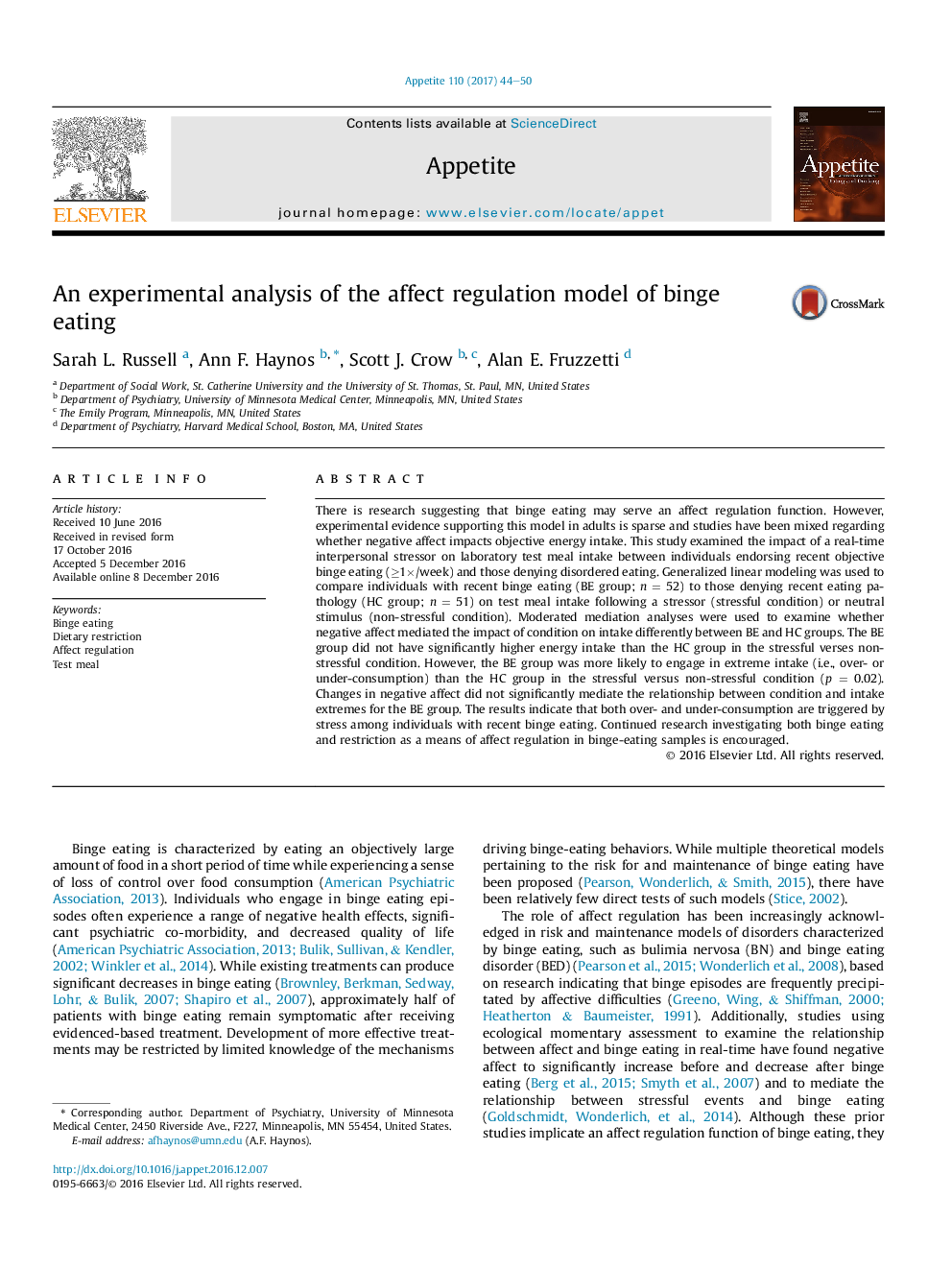| Article ID | Journal | Published Year | Pages | File Type |
|---|---|---|---|---|
| 5044272 | Appetite | 2017 | 7 Pages |
There is research suggesting that binge eating may serve an affect regulation function. However, experimental evidence supporting this model in adults is sparse and studies have been mixed regarding whether negative affect impacts objective energy intake. This study examined the impact of a real-time interpersonal stressor on laboratory test meal intake between individuals endorsing recent objective binge eating (â¥1Ã/week) and those denying disordered eating. Generalized linear modeling was used to compare individuals with recent binge eating (BE group; n = 52) to those denying recent eating pathology (HC group; n = 51) on test meal intake following a stressor (stressful condition) or neutral stimulus (non-stressful condition). Moderated mediation analyses were used to examine whether negative affect mediated the impact of condition on intake differently between BE and HC groups. The BE group did not have significantly higher energy intake than the HC group in the stressful verses non-stressful condition. However, the BE group was more likely to engage in extreme intake (i.e., over- or under-consumption) than the HC group in the stressful versus non-stressful condition (p = 0.02). Changes in negative affect did not significantly mediate the relationship between condition and intake extremes for the BE group. The results indicate that both over- and under-consumption are triggered by stress among individuals with recent binge eating. Continued research investigating both binge eating and restriction as a means of affect regulation in binge-eating samples is encouraged.
